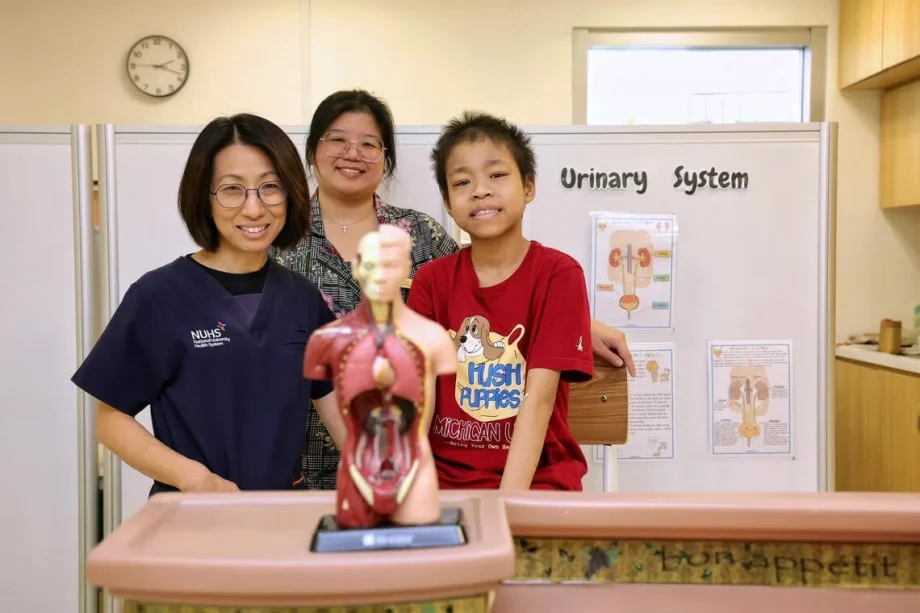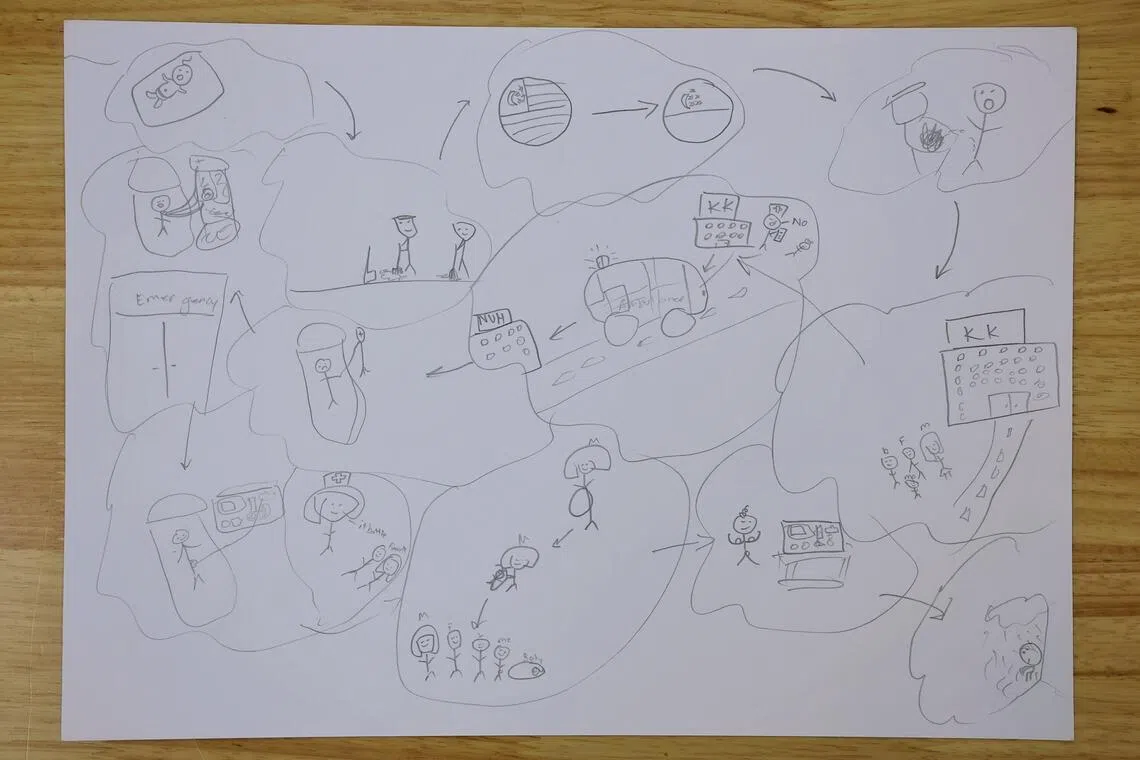SINGAPORE – Secondary school student Au Wan Rong was only 13 when he had both kidneys removed.
Today, the 16-year-old is on daily peritoneal dialysis, a home-based treatment for kidney failure that uses the lining of the abdomen as a natural filter to remove waste and excess fluid from the blood, and he administers himself “with great expertise”.
This involves draining the old fluid from his abdomen, filling it with new solution, and then sitting and waiting while the new solution collects waste and extra fluid. The process requires a strict sterile technique, including thoroughly washing one’s hands and carefully cleaning the connection area before each exchange to prevent infection.
“He is the youngest patient I have who does this on his own and does it cleanly without any infection,” said Associate Professor Ng Kar Hui, a senior consultant with the division of paediatric nephrology, dialysis and renal transplantation at the Khoo Teck Puat – National University Children’s Medical Institute’s department of paediatrics.
The TRPC6 protein is an important part of the cells in the kidney that help filter waste from the blood and Wan Rong’s kidney failure was due to a TRPC6 mutation, a genetic condition often linked to a progressive kidney disease.
Prof Ng said the mutations can cause a “gain-of-function” effect, and this excessive activity causes the kidney’s filtering unit to leak protein, leading to swelling, fatigue and kidney failure.
Wan Rong was only seven when the condition surfaced.
His parents noticed his urine looked “foamy like soapy water and my face was also extremely swollen”, he told The Straits Times.
Wan Rong was rushed to the emergency room of KK Women’s and Children’s Hospital for urgent tests.
He went through a series of urgent clinic visits and hospitalisation before his parents were told to brace themselves for a serious kidney condition in their middle child.
The exact cause of his renal failure was unknown at the time.
Doctors then thought what Wan Rong had was run-of-the-mill kidney failure and treated the condition with steroids to reduce inflamation. Kidney failure in children can result from birth defects, genetic disorders like polycystic kidney disease and urinary tract issues such as blockages.
The steroids did not work, as Wan Rong’s condition progressed and he was transferred about a year later to the National University Hospital, which has the only dedicated chronic dialysis service for children.
“(The medication) became toxic when his body did not respond to it and his kidneys deteriorated rather quickly. We were running research programmes on genetics then on patients who were not responding to treatment. We found that between 10 and 15 per cent of patients with kidney conditions were genetic cases and that was why Wan Rong was tested,” Prof Ng said.







